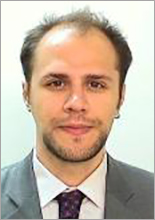Gender Equity and Political Participation in the Arab World
Since 2011, the Arab world has seen more and more positive changes in gender equality. Women's involvement in regional and domestic politics has increased in the past two years and they are gaining more hands-on experience. For example, an average of 12.2% of the seats of the parliaments in the Arab World are being held by women; given that Algeria, followed by Tunisia, have the highest shares in the Arab world, with rates of 31.6% and 26.7%, respectively.[1]
Besides, there is a growing number of women ministers in most Arab countries. For example, the United Arab Emirates is the leading country in terms of the percentage of women ministers in the cabinet of 18.2%, followed by Mauritania and Bahrain, both of 11.5%.[2] Although these rates are higher than the Arab countries’ average (7.7%), it lags far behind the western world's average (44.6%). Despite the increasing numbers of women in parliament, women have not significantly increased their foothold in the cabinets of local governments.
Approaching the gender parity issue through institutional structuring has enabled countries such as Algeria and Djibouti to start paving the way for women’s representation in the political arena. But even in countries such as Jordan, which has been using quota systems, the number of female parliamentarians remains low.
Considering the region's economic and social turbulence in the past few years, the rates of women’s participation in politics are impressive. Somalia is an impressive example of this growth, as the number of women in its parliament has grown from 6.8% to 13.8% between 2011 and 2012. Similarly, Comoros has increased its numbers from 3% in 1999 to 20% in 2012. Since the beginning of the Arab Spring in 2010 and the subsequent changes in the social arena, countries in the Arab world are working towards a more inclusive political arena.
[1] Data excludes West Bank and Gaza.
[2] Data excludes West Bank and Gaza.
Yarın Kıroğlu is a consultant for GGODR at The World Bank. His research interests include world politics, political demography, political economy of growth and development, economic and demographic implications of bilateral trade, econometrics, game theory, and computational analysis. He holds M.A. in Business Information Systems and M.A. in International Political Economy.
